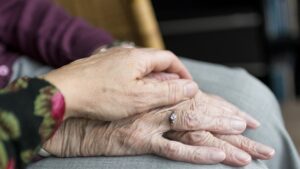
This CNN headline caught my eye this week: “Most Of Today’s Children Are Unlikely To Live To 100, Analysis Says.”
It quotes gerontologist Professor Jay Olshansky, who has been studying this subject since 1990. When asked about others who have predicted we would live to 120 or even 150, he replied:
Those are all made up numbers. There is no way to empirically verify claims of radical life extension that are being made by folks in this industry.
In our paper we say, “Please, stop exaggerating. These are untestable scientific hypotheses.” Only one woman has made it to her 122nd birthday and that’s it.
Aging is currently immutable — it’s the decline of your cells, tissues, organs and organ systems that currently can’t be stopped. It is a byproduct of operating the machinery of life.
Good! Living that long would not be much fun.
I’ve seen the effects of aging on members of my own family who, once they reached their late eighties, suffered from debilitating mental health issues and the rest of their bodies wearing out, too. I saw what my mother’s existence was like in the last few years before she died from Alzheimer’s at 94. The waning years of my mother-in-law’s life were terrible, too.
No, thanks. Are there people who live past that point in good health? Certainly, but the numbers are very small.
Another issue all the longevity predictors never address is how we’re supposed to support ourselves for so long. Too many people already can’t afford to support themselves after retiring in their sixties or seventies. After working forty or more years, how are they going to stretch their meager savings for five, six, seven additional decades? Not only would it put a strain on their personal finances and those of the rest of their families, but Social Security, Medicare, and Medicaid would collapse under the weight of extending the social safety net that far.
A friend who recently turned eighty told me it would be perfectly okay with him if he died in the next few years. He doesn’t have a death wish, but he recognizes the reality of what’s in store and would rather not go through it. I’m with him.
Besides, how many early-bird dinners can a person eat?
